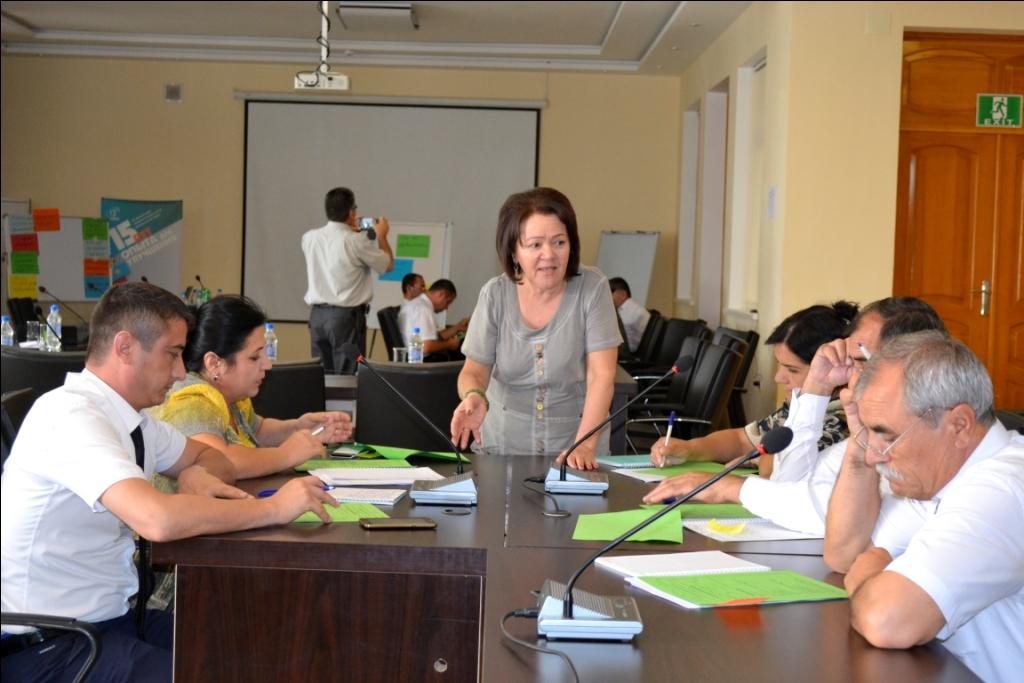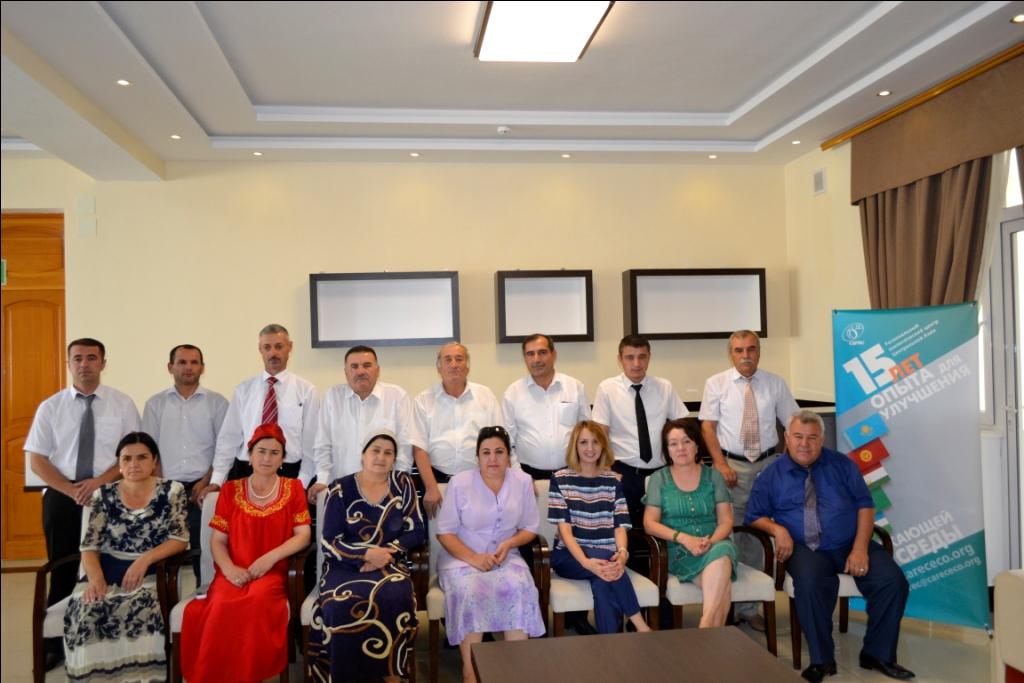Capacity building to conduct field surveys in Tajikistan

July 28-29, 2016. Dushanbe, Tajikistan. A two-days training is taking place in Dushanbe, the capital of Tajikistan, to capacitate interviewers in conducting household surveys in pilot sites of the research project. More than 20 participants from different regions of Tajikistan came together to acquire comprehensive knowledge about the project, learn about key aspects of the field research, and improve their practical skills to conduct household surveys in pilot sites of the country.
Throughout the training, the interviewers learned how to work with questionnaires, how to identify target and control type of households, comply with ethics in talking with respondents, as well as to analyze and clarify complex questions, summarize answers of respondents and use gender approach. An important element of the training is to conduct interviews with focus groups, which represent women-led households only. The results of these interviews will feed into formulation of a case study, which aims to determine the share of migrant remittances for adaptation and climate-resilience at the household level.
The methodology, which has been shaped for this type of the research project, identified 13 pilot sites in Khatlon, Sughd, Regions under the Republican Administration (RRA) and Gorno-Badakhshan Autonomous Oblast (GBAO), which have been selected due to the following criteria: (i) vulnerability to climate change and aridity (ii) the number of external labor migrants. The sample size has the minimum threshold of 523 households, which fits the methods of qualitative and quantitative research in the case of Tajikistan.
The main approach of the research project is to involve the interviewers from the pilot sites, which have been selected for household surveys. Thereby, all involved interviewers live in pilot sites of the project and possess excellent knowledge about socio-economic development of jamoats (villages), geo-climatic conditions and are acquainted with households’ members, whose main source of income is remittances. Moreover, the opportunity to improve knowledge in the field of research and enhance practical skills in conducting surveys plays an important role in capacity building and understanding of the local population about the topic of migration, remittances and climate resilience.
Project reference:
The project “Migration, remittances, adaptation and resilience to climate change in arid and semi-arid regions of Senegal and Tajikistan” is one of the research packages of PRISE. PRISE (“Pathways to Resilience in Semi-Arid Economies) is a multi-country initiative, which during five years will generate new knowledge about how economic development in semi arid regions can be made more equitable and resilient to climate change. PRISE is carried out under the Collaborative Adaptation Research Initiative in Africa and Asia (CARIAA), with financial support from the UK Government’s Department (DfID) and the International Development Research Centre (IDRC), Canada.

